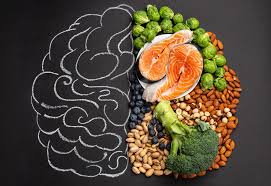A recent study has shed light on the significant impact of diet on mental health. Researchers have discovered compelling evidence linking certain dietary changes to improvements in psychological well-being.
2. Understanding the Findings
The study found that individuals who adopted a diet rich in fruits, vegetables, whole grains, and lean proteins experienced reduced symptoms of depression and anxiety. Conversely, those with poor dietary habits, such as excessive consumption of processed foods and sugary beverages, were more likely to report mental health issues.
The Role of Nutrition
1. Nutrient-Rich Foods
Foods high in nutrients, such as vitamins, minerals, and antioxidants, play a crucial role in supporting brain health and function. Incorporating a variety of nutrient-rich foods into your diet can help maintain optimal mental well-being.
2. Impact of Processed Foods
On the other hand, processed foods, which are often high in refined sugars, unhealthy fats, and artificial additives, can have detrimental effects on mental health. Consuming these foods regularly may contribute to mood swings, fatigue, and other symptoms of poor mental health.
Practical Tips for Improving Mental Health Through Diet
1. Prioritize Whole Foods
Focus on incorporating whole foods into your diet, including fruits, vegetables, whole grains, lean proteins, and healthy fats. These foods provide essential nutrients that support brain function and overall well-being.
2. Limit Processed Foods
Reduce your intake of processed foods, such as fast food, sugary snacks, and packaged meals. Instead, opt for homemade meals made from fresh, wholesome ingredients whenever possible.
The findings of this study underscore the importance of dietary choices in promoting mental health and well-being. By adopting a balanced and nutritious diet, individuals can take proactive steps to support their mental and emotional resilience.




